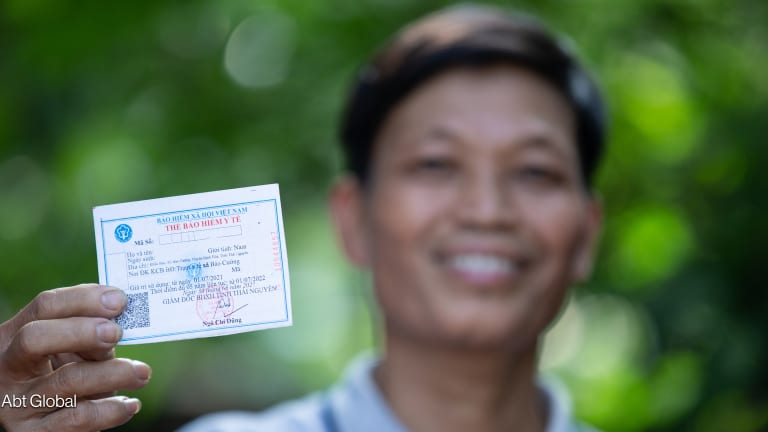
If gender equity in humanitarian education is to advance in 2022, the sector needs a radically different approach to data, coordination, program design, and policymaking. That is according to findings in Equal Measures 2030's recent report, “Leveraging Data and Partnerships: Strengthening Girls' Education in Emergencies with WROs.”
In order to make this shift, I believe there are four critical areas that the education in emergencies, or EiE, sector should prioritize in 2022. They are:
1. Rethink the sector's expertise
Girls face multiple barriers to education from sexual and gender-based violence in schools, domestic and child care responsibilities to discriminatory gender norms and teaching practices.
Multiple perspectives and approaches grounded in historical, geographical, contextual, and cultural forms of knowledge and expertise are needed to address these issues.
Women’s rights organizations, or WROs, due to their position as grassroots organizations — and often founded by crisis-affected communities — have unique access to girls' lived realities in crisis-affected areas, and this invaluable type of expertise needs to be acknowledged and centered.
However, findings from the report indicate that United Nations agencies, international NGOs, and national governments “play a central role in setting the direction and implementation of programmes” but with little representation from grassroots organizations, such as WROs, in decision and policymaking in EiE.
This underlines an urgent need for many actors within the EiE ecosystem to cede power. At present, technical advisers, far removed from the context, are considered the experts, designing EiE gender-responsive programs and toolkits and conducting research and advocacy agendas. This has to change.
Designing with WROs and community-based organizations would center local expertise and bring to the forefront the incredible work many are doing to advance girls' access to education amid highly challenging contexts.
2. Call for more robust mechanisms of collaboration and coordination
The EM2030 report indicates that “WROs are currently absent from national discussions on challenges and directions for EiE policy and interventions” due to the siloed thematic approaches to coordination that permeate the aid sector.
The findings also indicate that there are wider issues with EiE coordination. EiE working groups/national education clusters are “criticized for favoring international NGOs in their membership while excluding grassroots organizations.”
The legacy of colonialism and other historical injustices are central to the conditions of poverty, destabilization, and violent conflict that are barriers to girls' education in emergencies.
—The exclusionary EiE coordination system is replicated at the global level. At present, the overwhelming majority of key EiE institutions, donors, and networks have not created processes, governance, or coordination structures that enable girls and WROs — particularly those with lived experience of EiE — a seat at the table.
In 2022, the global EiE sector needs to consider how asymmetric power dynamics are invoked, reinforced, and contested through coordination and policymaking mechanisms. Furthermore, inclusive EiE coordination mechanisms would contribute to much-needed accountability to girls in crisis contexts.
3. Call for EiE data rooted in intersectionality
There is undoubtedly a need for more grounded and equitable flows of EiE data between organizations working to support gender-responsive EiE, but also a recognition that the current approaches to data collection are not always fit for purpose.
Girls and female teachers are not a monolith and exist in sociocultural, economic, and political contexts where factors such as; ethnicity, class, caste, age, gender, disability, sexuality, location, and childrearing responsibilities affect an individual's educational experience.
Recognition and attention to difference and overlapping oppressions is known as intersectionality. Intersectional feminism is an essential lens for anyone working in EiE because education is often touted as the great equalizer, but how can it be if programs and policies do not consider the breadth of people's distinct heterogeneous needs and assets?
Intersectionality also means going beyond collecting disaggregated data to reflect on power dynamics within EiE data and evidence. The sector must respond to the growing critique of extractive research practices.
In addition, EiE stakeholders must also act on the copious amounts of readily available data and should engage with those who have lived through previous interventions and programs to inform their design.
Furthermore, data from the EM2030 report highlights a noted concern on the capacities of WROs and CBOs to engage in data sharing, ensure the reliability of data collected, and amplify their analyses. However, arguably INGOs, governmental bodies, and universities have severe capacity deficits in implementing equitable, culturally-responsive research practices.
WROs are likely better positioned to design and collect nuanced, culturally informed data that would provide critical insights currently absent for girls' education.
4. Call to reflect on colonial legacies
More than ever, EiE stakeholders need to look at the broader political economy in which the EiE sector works and reconcile that the imprint of colonialism is present in a myriad of places, practices, and social relationships, including narratives around gender and girls' education.
The EM2030 report underlines that the legacy of colonialism and other historical injustices are central to the conditions of poverty, destabilization, and violent conflict that are barriers to girls' education in emergencies. Global institutions mainly impose funding structures for WROs and CBOs, and without sustainable and fair funding, grassroots organizations can burn out and fold.
An unjust humanitarian ecosystem reinforces economic disparities. The EM2030 report tells us that teachers in refugee camps, who are paid incentives, earn less than one to one-tenth of a national teacher's salary in Kenya. The stark pay inequities are not unique to this context but indicate broader structural inequities in aid.
As noted by Jee Rubin at the recent CEDE conference, the current system enables an international EIE expert to earn more in one day than what teachers in refugee camps make in a year. Exploitative labor practices undoubtedly contribute to female teacher attrition.
In 2022, a new social contract is needed for EiE, which is driven by affected populations, embraces intersectionality and broader definitions of expertise, and responds and mitigates the reproduction of exclusion through its structures, systems, and knowledge production.








